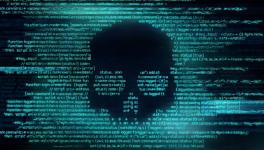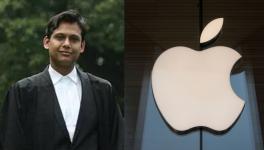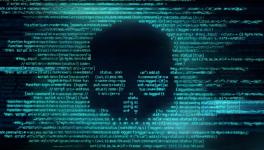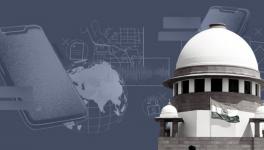Pegasus and How the Israeli State Militarises Cyber Technology

Image Credit: Aman Khatri
Last month, a consortium of 17 media organisations, along with Amnesty International and French NGO Forbidden Stories, published a list of phone numbers that were potentially targeted using Pegasus. Forensic analysis later confirmed that some of these numbers were targeted using Pegasus. Pegasus is spyware built by an Israeli organisation called NSO Group, which claims it only sells to governments. It can reportedly track locations, read all information on a device, and record phone calls. It can also reportedly plant information on a target’s device.
In India, the list of people targeted with Pegasus include political dissidents as well as judges, army officials and other politicians. The list of targets makes it unlikely that any entity other than the government of India – guided by the leadership of the BJP – would have purchased and used this software. The use of Pegasus in this manner raises questions of corruption, surveillance and political impunity.
However, one dimension of the scandal that is overlooked is the role of the Israeli government in promoting cyberweapons including Pegasus, and how these weapons came to be developed in an ecosystem of settler-colonialism. In this interview, Hala Marshood (@hala_marshood), Palestinian activist and political economy researcher, walks us through the domestic and foreign policy goals of the Israeli state and how they are served with the use and export of cyberweapons.
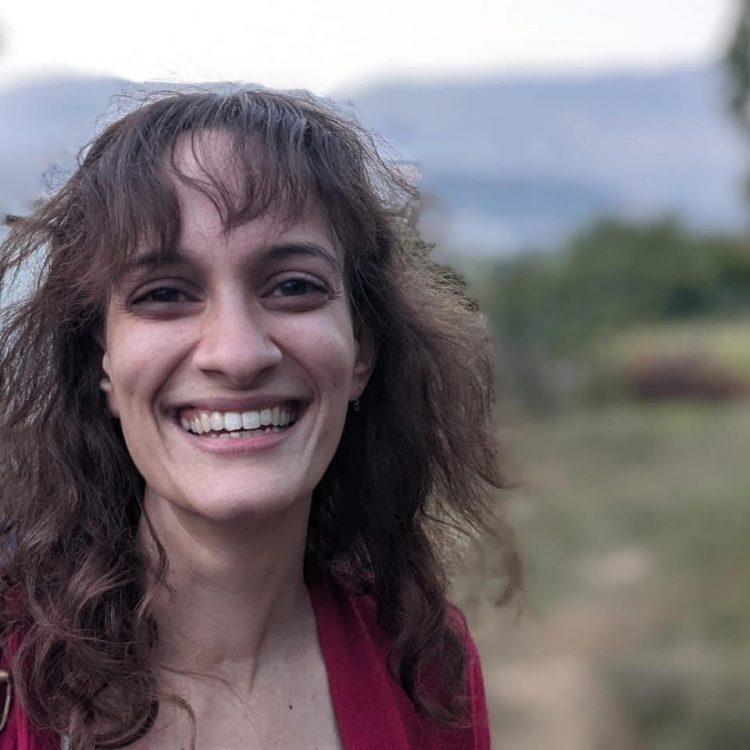
Hala Marshood
Jai Vipra (JV): Can you tell us a little bit about what Who Profits does, and why?
Hala Marshood (HM): Who Profits is an independent research centre dedicated to exposing the structures of power that enable occupation and injustices practiced on the Palestinians and the Syrian community (in the occupied Syrian Golan). We operate a database with over 400 companies complicit in the Israeli occupation, whether through providing equipment and services to the Israeli military apparatus, or through economic exploitation and bolstering settlement enterprise. In addition, we publish reports looking more deeply at sectors or issues concerning the economy of the occupation and the different actors involved in facilitating colonial policies on the ground. We also operate an information centre where activists, civil society organisations and different actors can contact us to receive information.
JV: Few people see cybersecurity or cyberweaponry as an industry. What does Israel’s cybersecurity industry look like? And how does the industry tie in with Israel’s foreign policy goals?
HM: Israel does not only have a booming cyber industry but it is also a key player in the fast global market for cybersecurity products. Looking at the figures reveal the extent of the Israeli cyber industry’s power on a global level. In 2020, Israeli cyber firms received approximately 31% of global investment in the sector, acquisitions of Israeli cyber companies generated some US$4.7 billion, and Israeli cyber exports stood at US$6.85 billion. High-tech in general is a major growth engine in the Israeli economy, and it contributes to around 12% of Israel’s GDP, and accounted for 43% of all Israeli exports. The industry is highly globalised dominated by foreign investments.
The cyber industry has expanded dramatically since 2010. The number of cyber companies operating in Israel more than doubled between 2010 and 2019. Israel’s prolific cyber industry owes much of its existence to the role played by the military sector in shaping the Israeli high-tech sector. Academia and government also promote the industry through joint research collaborations and international partnerships.
What we managed to find during our years of research is that corporate entities do not only operate as money-making machines, but also as facilitators of political objectives, and the cyber industry is a clear-cut example. Israel not only exports its technologies to other regimes, but also uses cyber technology as a vehicle to enhance its power on the diplomatic level. Looking solely at the way the industry is shaped shows how it is vital for the achievement of the Israeli political agenda, as the Israeli state actively supports the high-tech industry, and cyber tech in particular, through tax exemptions, grants, subsidies, and liberalised export and licensing policies. Through the Israel Innovation Authority, it invests about NIS 1.5 billion annually in high-tech companies in the form of grants and exempts them from taxes through the Law for the Encouragement of Capital Investments. Academic institutions are also involved in bolstering the industry. This is not coincidental, as the industry plays a role in creating diplomatic relations.
Also Read | COVID-19 in Palestine: Solidarity and steadfastness amidst multiple crises
Let’s take the UAE as a case-study, where Israel’s cyber industry played a role in facilitating normalisation, a reality that has dire consequences both on the Palestinian cause and on the other populations in the Arab world. The export of Israeli cyber intelligence and espionage technologies has been an important channel in this growing rapprochement. Rori Donaghy, founder of the Emirates Centre for Human Rights, told The Intercept in 2016 that the UAE considers Israelis to be “simply the best in this market, the most intrusive, the most secretive”. The UAE has been buying Israeli cyber technologies for years, way before the formal normalisation agreement was enacted, through delegations or collaborations between UAE-based companies and Israeli companies, thus business actors played a role in paving the way for more ties to be achieved. These are two examples of past shared activity between the two prior to the official normalisation: In 2016, the Swiss-registered company Asia Global Technologies (AGT), owned by Israeli businessman Mati Kochavi, participated in installing Abu Dhabi’s mass-surveillance system Falcon Eye. In addition, the Abu Dhabi-based cyber company Dark Matter has been recruiting Unit 8200 veterans and employing them in Cyprus. Former Israeli military intelligence personnel were reportedly tied to a messaging app used by the UAE to monitor and surveil users.
The forms of political, economic and scientific cooperation facilitated by the UAE-Israeli normalisation reveals how the surveillance industry is utilised to promote political goals, generating enormous profits in the process, as many initiatives are centred around the exchange of cyber technologies or the cooperation in the cyber domain, and this was expressed very clearly and explicitly by both Israeli and Emirati figures.
JV: The work of NSO Group and its spyware including Pegasus was known prior to these recent leaks. However, very little is written about the people behind NSO Group. Who are the people who build this spyware? What are their connections to different governments?
HM: It is extremely important to understand not only how Israel contributes to repression on a global-level, but also how these technologies came to be in the first place. The Israeli hi-tech sector in general originates from the Israeli military apparatus, where soldiers in the different technological units, such as 8200, finish service and use the knowledge accumulated throughout the service to establish companies and privatise what is basically military knowledge. In other words, these technologies came to be due to the nature of Israel as a settler-colonial entity practicing control and oppression on the Palestinian people. Recent events in particular portray how this reality has a world-wide effect, as other oppressive regimes enjoy Israeli technology to practice repression, and cyber technology is the latest chapter in this reality.
NSO is a clear example. Shalev Hulio, a co-founder of NSO, served as “a Major in the Israeli army’s Search and Rescue unit and continues to serve in the army reserve and has been involved in a number of search and rescue operations in both Israel and abroad”. Senior advisor Daniel Reisner served as the head of the Israeli army’s International Law Department and was responsible for advising the Israeli leadership on “Israeli-Palestinian relations” and “counter-terrorism operations.” Buky Carmeli, another senior advisor, is the former head of Israeli Ministry of Defense (IMOD) Cyber Defense division. In addition, some of the company’s employees were veterans of Unit 8200, the Military Intelligence Directorate’s main information gathering unit, which is an integral part of the mechanism of military control over Palestinians.
JV: What do you make of NSO Group’s attempts to sell a Covid-19 contact tracing solution? Do you think targeted surveillance often spills out into mass surveillance?
HM: COVID-19 provided governments an opportunity to expand and conduct mass surveillance over populations, allowing corporations to profiteer from a public health crisis. This task was easier on the Israeli regime, for the fact that it already has highly advanced systems aimed at controlling the Palestinians and crushing their resistance to the occupation. The Israeli response to the COVID-19 was a highly militarised and securitised one in general, where different tools were used to “halt” the spread of the virus, and where weapon-manufacturers used their knowledge to produce products related to health, such as ventilators. This means that as time goes by, there is a chance that civilian sectors would be controlled by a securitised and militarised mentality. This is not new in the Israeli context, as the division between the civilian and the military spheres is a basically an illusion. However, this may contribute to wider and more global trends. In addition, the response to COVID-19 allowed for companies to diversify production, thus gave weapons-manufacturer and surveillance technologies producers the ability to bolster their knowledge. This will directly affect the Palestinians as it is the colonised population that is the first to endure Israeli military power and oppression on their bodies and souls. This will also affect others, as Israeli knowledge, technologies and weaponry circulate worldwide, and India is a very clear example.
Also Read | Artist Rajib Chowdhury’s take on the 75th year of Independence
During the first lockdown, the International Defense Cooperation Directorate of the IMOD – a body designed to showcase Israeli military technology internationally- published a tender where the winning company will identify potential customers for Israeli military and security companies, especially since the COVID-19 crisis and the economic devastation caused by it will create resistance among the populations. It is clear from this tender where and how Israel is positioning itself on the global scale, and the fear of the Israeli trend to not only produce oppressive means to target the Palestinians, but to generate political and economic objectives worldwide, and COVID-19 was the perfect opportunity for it.
JV: Who Profits has also written about the private security industry in Israel. How are cyberweapons and private security turned inwards towards Palestinians, and how are Palestinians fighting back?
HM: The Palestinian population is the colonised population, living under daily violence practiced on them by the Israel and its different bodies. The Palestinians are also the training ground to test technologies and weaponry and prove “their effectiveness”, giving companies a competitive edge on the international markets. Palestinians live under a very intricate and restrictive system of population control, including living under constant surveillance and going through checkpoints, that are now being enhanced and will include more sophisticated biometric systems. As such, cyberweapons are created because of the colonisation of Palestinian land and people, and many are targeted towards them. From CCTV cameras in the old city of Jerusalem, to biometrics systems in checkpoints, and from the presence of the army and private security companies in checkpoints or protecting settlers to practicing actual assassinations on the ground due to the help of surveillance systems, this is the daily and continued reality in Palestine, affecting Palestinians in all of their geographies.
Hala Marshood is a Palestinian activist and political economy researcher. She is associated with the independent research centre, Who Profits, that chronicles the role of private enterprises in maintaining the Israeli occupation.
Jai Vipra from the Centre for Applied Law and Technology Research at Vidhi Centre for Legal Policy.
Get the latest reports & analysis with people's perspective on Protests, movements & deep analytical videos, discussions of the current affairs in your Telegram app. Subscribe to NewsClick's Telegram channel & get Real-Time updates on stories, as they get published on our website.










